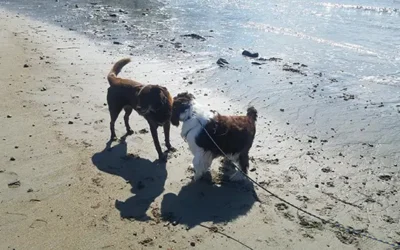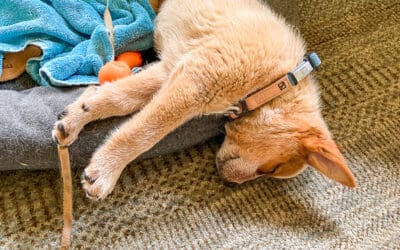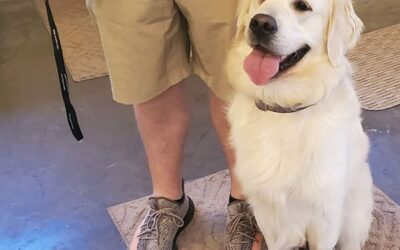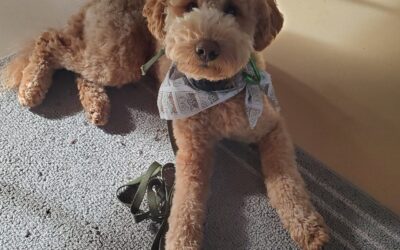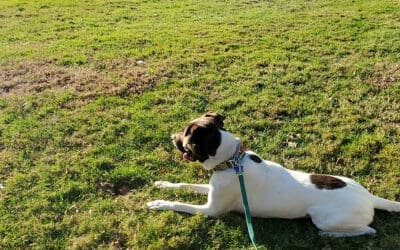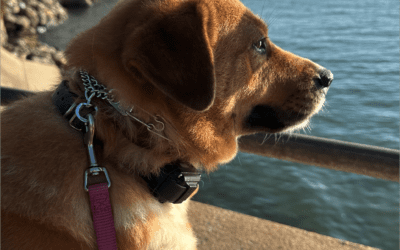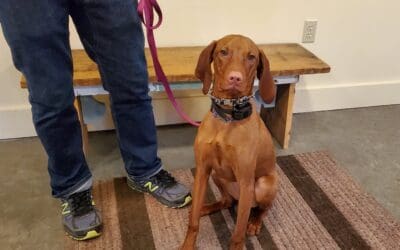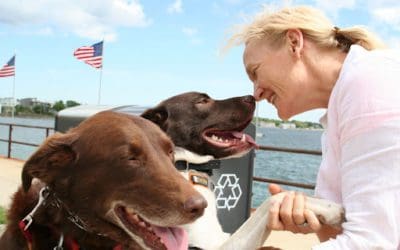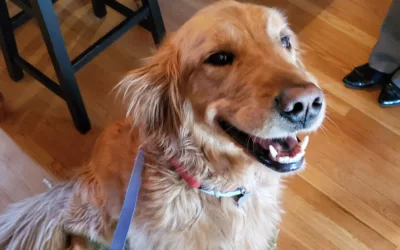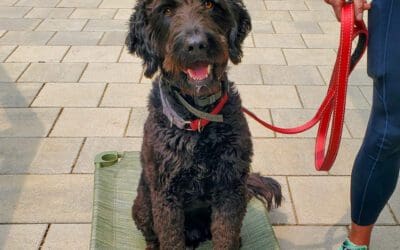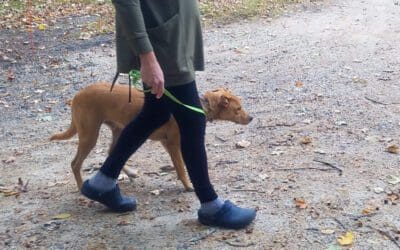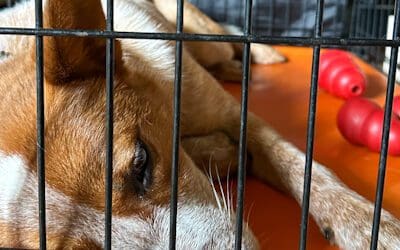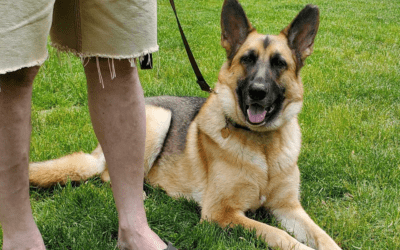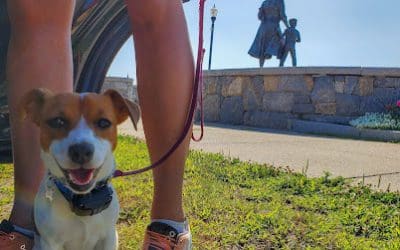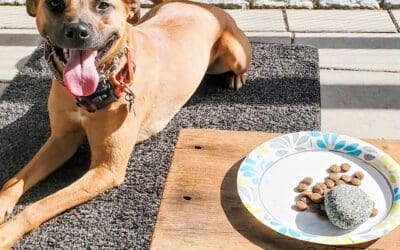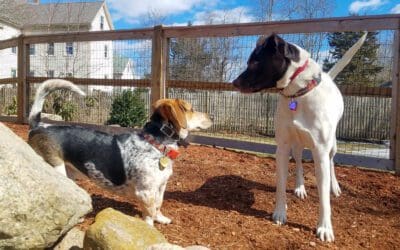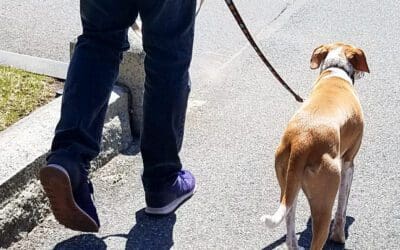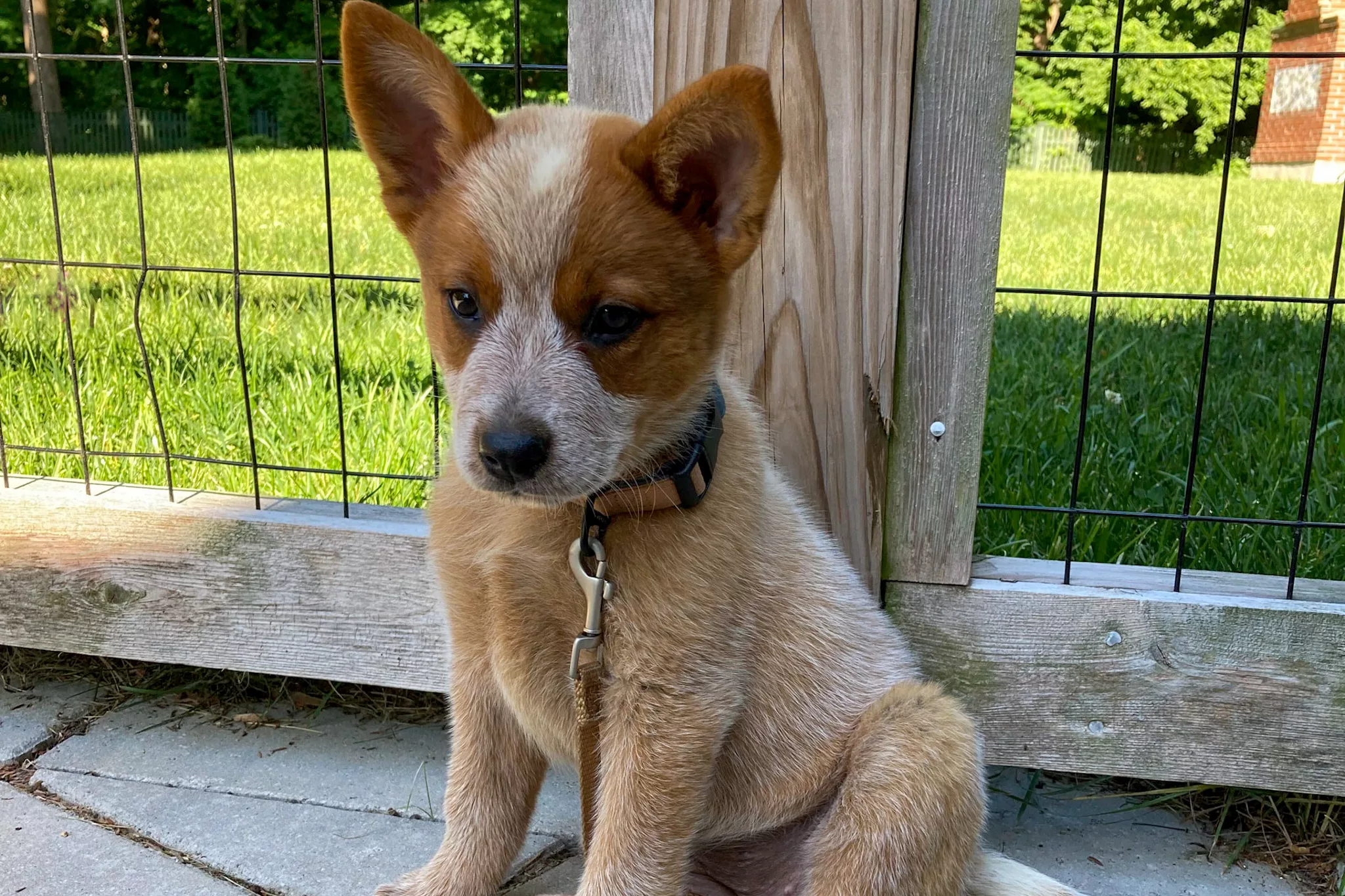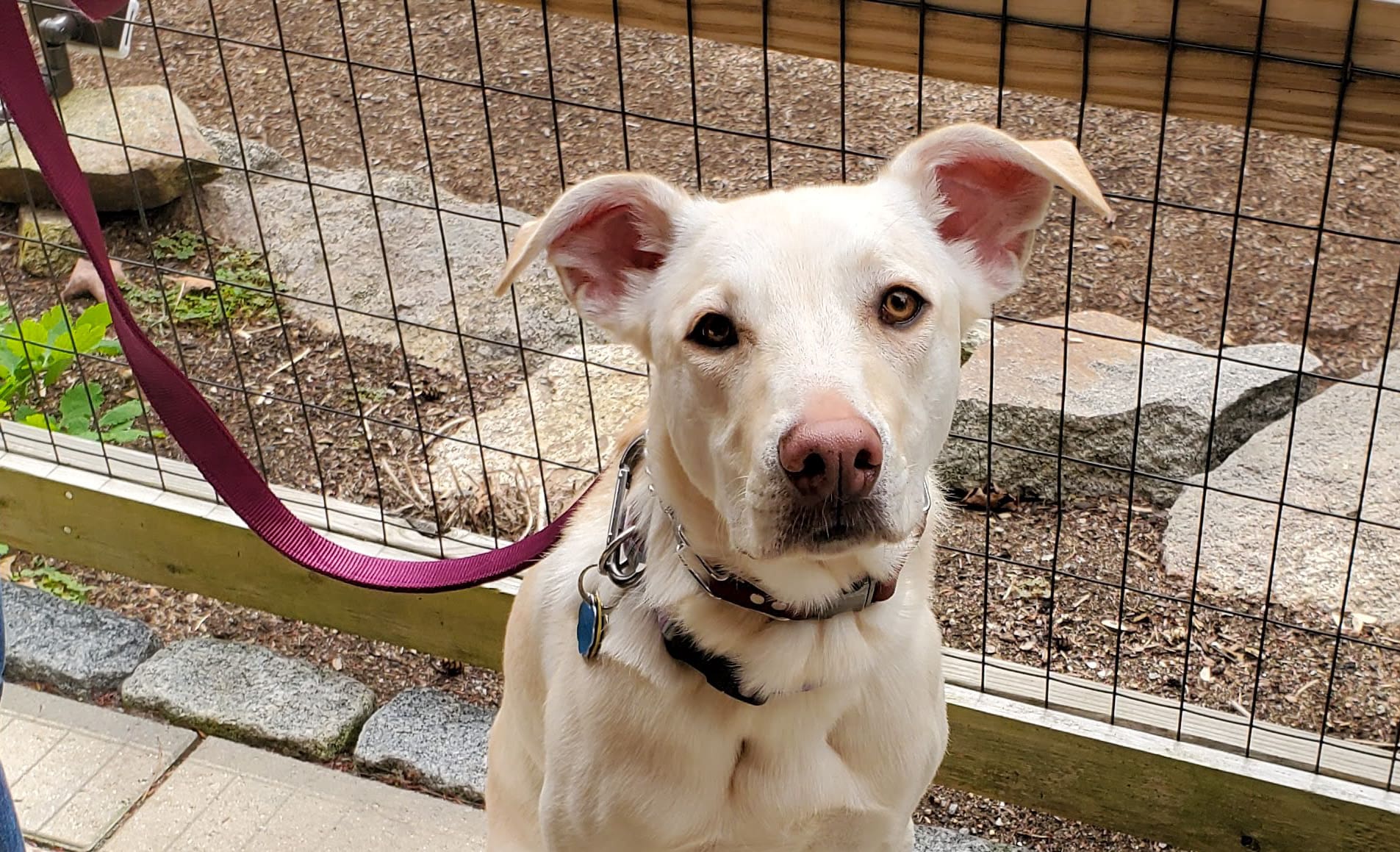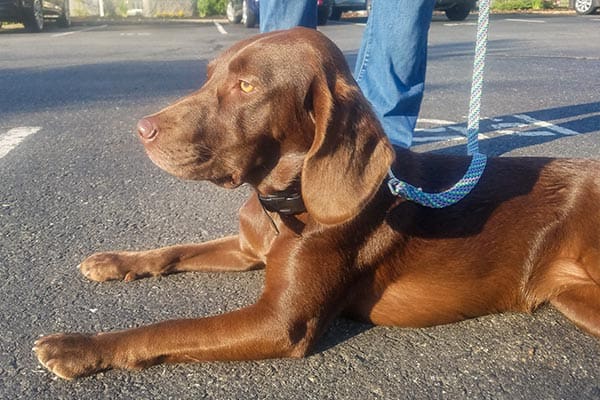Planning for challenging, unsafe, or uncomfortable situations can help you better navigate life with your dog. Just like fire drills help us prepare for emergencies, understanding unsafe or stressful incidents with your dog is also helpful. You’ve thought through how...
Everyday Dog Training Articles
Any time you interact with your dog is a training opportunity. How you choose to use your time is reflected back in your dog’s behavior. Understanding everyday dog training opportunities is key to having the best dog in the neighborhood. Our articles are continually updated and added to, with new dog training information and tips to help you achieve your goals.
Are You Accidentally Making Dog Training Harder? 6 Things to Avoid
Dog training can feel frustrating when progress is slow, but sometimes small things get in the way without us realizing it. A well-behaved dog starts with a calm state of mind. If your dog is too excited, nervous, or stuck in a “fight or flight” mode, they’re paying...
Your Leadership: The Essential Piece of Dog Training
What does your dog choose to do when you’re not giving a specific command? Bark at the window? Follow everyone around the house? Stay over-excited all day? Does he ignore you when you need him to pay attention? So what’s missing? When your dog respects your...
Training Your Dog for the Vet
Your dog doesn’t have to love the vet, but she does need to be on good behavior. Vets work long hours to care for our beloved canines; we can help make their job a bit easier by training our dogs for the vet. Getting your dog ready for the vet also means training her...
Training Your Dog for the Groomer
Every dog will need grooming regardless of the breed and training is important to making that possible. Your goal is to start small, getting your puppy used to the motions and sensations of brushing, nail clipping, and even bathing. Through regular handling, slow...
Crate Training: Raising a Calm Puppy to be a Confident Dog
Raising a well-behaved dog starts by establishing a calm state of mind during puppyhood. Beginning with crate training your new pup will set your family up for long-term success. When you crate train your puppy, you teach them how to self-settle. This assigns your...
Anticipate Excitement Level and Have a Well-Trained Dog
Learning to anticipate your dog's reactivity is key to stopping unwanted behaviors. It’s a process and takes time to learn to read your dog’s body language well. The better we get at reading their body language, the more efficiently and accurately we can set ...
Advocating for Your Dog is an Essential Role in Training
Having a well-behaved dog starts with your leadership. We talk a lot about leading your dog to make better choices, consistent boundaries, and assigning your dog a job. A key component to being a successful leader is advocacy. No matter who you’re leading, a team at...
Why Dog Training Tools Are Essential: Understanding the Prong Collar
Can a person be successful without using tools to change their dog’s behavior? Absolutely. But using these tools to train your dog speeds up the process and makes your consistent training effort very efficient. The use of training tools in our program can produce fast...
Teach Calmness Using a Schedule for Better Behavior
Setting and maintaining a schedule can help take the guesswork out of resolving bad behavior. No matter your dog’s age, more daily management of your dog is generally required to get different results. A Schedule for Calmness Setting and maintaining a schedule is...
Question: “When can I stop using the crate or prong collar?”
A common question many owners have is: Will my dog always have to use a dog crate and prong collar? We always make the point that owners can choose when to stop using a crate or prong collar but that the choice is best made when there are no more behavior issues to...
A Dog Training New Year’s Resolution?
Personal health and wellness are often at the top of the list for New Year’s resolutions. But how do our dogs figure into our resolutions? That might sound like, 'we should work on training more.' But what if it's actually about finding the right training program? If...
Tone of Voice as a Dog Training Tool
Dog Coach dog training is about changing your energy as a dog owner and handler. You want better behavior from your dog, you’re raising your expectations of your dog – and yourself. Something as small as changing your voice can change your energy and shift the way you...
Using the Place Command in Everyday Life
What is Place Command for Dogs Place is a command that tells your dog to go to a specific location and remain there until released. It can be a small rug, cot, dog bed, even a bath mat or towel. Place is a helpful command for getting your dog to settle and using it...
Short Dog Walks as a Balanced Training Tool
When most people think of a tired dog, they think of throwing the ball and running free or taking a long walk. Each of these has a place. The balanced dog training method that Dog Coach teaches owners uses short walks as an important training opportunity. A shorter...
A Calm State of Mind
When you want a better behaved dog, it all starts with establishing your dog’s calm state of mind. By focusing on training at home with lower distractions you teach your dog how to be calm. A calm dog doesn’t just naturally happen without your instruction. If your...
Crate Training a Dog
Full crate training a dog is teaching them to self-settle in their dog crate, with the door closed, whenever you place them in the crate for a nap or nighttime sleep. This approach yields the most benefits of crate training and contributes to better behavior outside...
Everyday Dog Training Opportunities
When you’re trying to train a better dog, every day is a good day to train your dog. Feeding morning breakfast, getting “dressed” with collars and leash, going out the door, and on your everyday walk, the opportunities can be significant.How do you identify training...
10 Things to Do Instead of Going to the Dog Park
While dog parks may seem like a good idea, they can compromise your dog’s calm, manageable state of mind and all the work you’ve done on training your dog. You can never be quite sure who is there and how other dogs will behave. Instead, opt for one of these choices...
Using Food to Train Your Dog: the Power of Mealtime
There’s no question that food can have a powerful effect on a dog. How you choose to incorporate food into relationship-based dog training actually matters. By using a dog’s natural food drive, you can impart lessons of leadership, calmness, impulse control, and...
Having a Well-Socialized Dog
Socialization of your dog is built on your human-canine relationship before it’s time for a fun canine-canine interaction. Leadership precedes socialization.Socialization of dogs goes beyond the simple concept of “mixing with others” and “let the dogs work it out.”...
What is a Structured Walk?
By using calm, confident leash control while walking your dog at your side, you are practicing a Structured Walk. It’s an exercise in communicating better behavior expectations for your dog. The Structured Walk is a fundamental component of Dog Coach training and...
Now Offering Training in Somerville, Cambridge, Medford & Surrounding Area!
See the full list of areas served
North Shore MA In-Person Dog Training
Puppy Training
Team Puppy is for dogs ages 8-16 weeks. The program is 3 sessions, one-on-one and covers:
- Setting a feed and sleep schedule
- Crate training
- Potty training
- Controlling nipping, barking, and more
Foundation Training
Foundation training is a comprehensive approach to dog training. Whether you're looking for obedience training or behavior modification, Our results-driven dog training is a deep dive into how you and your family interact with your dog.
Basic challenges we address include:
- Leash reactivity
- Food and resource guarding
- Fear and separation anxiety
- Dog-to-dog aggression
- Socialization
- Basic dog obedience
Remote Collar Training
Remote collar training is for the dog that tends to make bad choices, is uncontrollable, does not listen to you, or is easily over-excited.
Remote collar training includes all the lessons of our Foundation Program with practice in:
- Sit, place (stay), heel, and down
- Off-leash recall
- Proper responses to excessive barking and resource guarding

